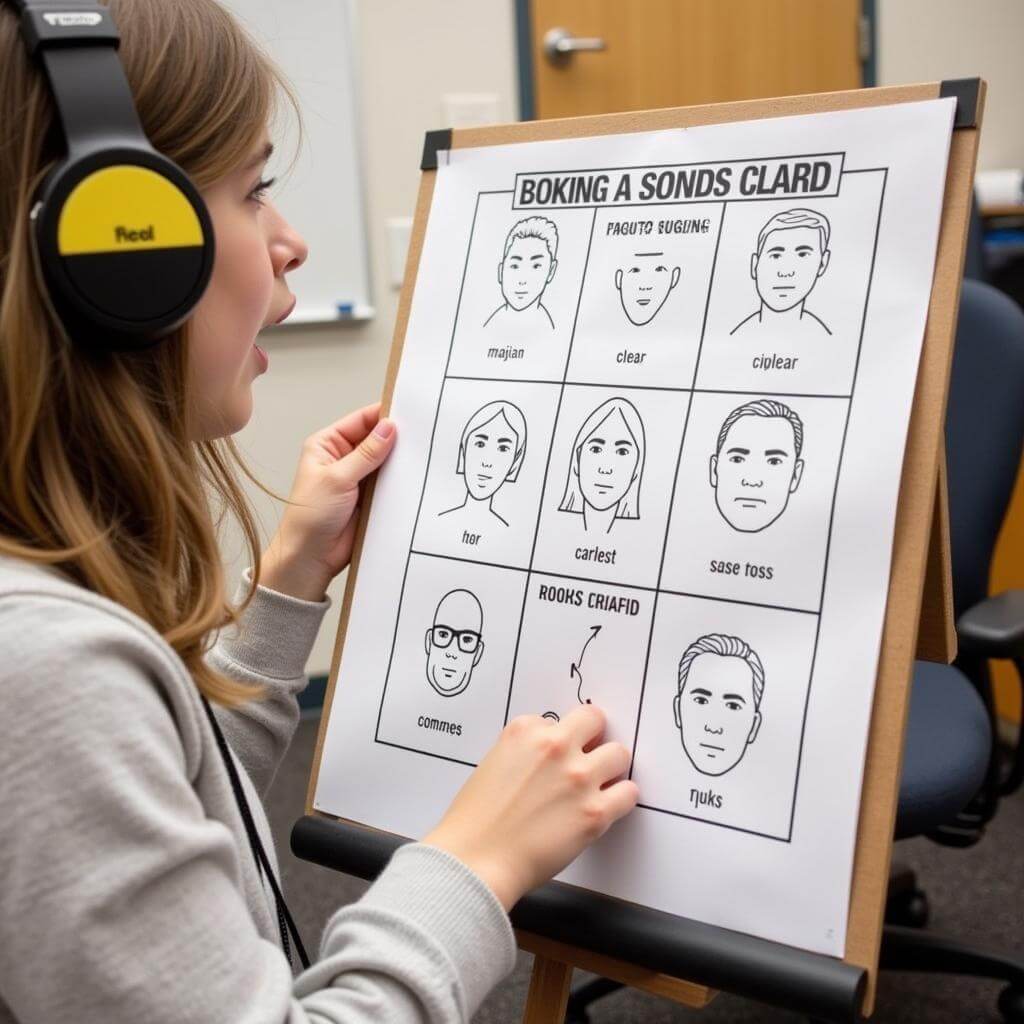Clear pronunciation is a crucial factor in achieving high scores in the IELTS Speaking test. Many test-takers underestimate its importance, focusing solely on vocabulary and grammar. However, improving pronunciation for difficult sounds can significantly boost your overall performance. In this comprehensive guide, we’ll explore effective strategies to enhance your pronunciation and elevate your IELTS Speaking score.
Understanding the Importance of Pronunciation in IELTS
Before diving into specific techniques, it’s essential to recognize why pronunciation matters in IELTS:
- Clarity of communication
- Examiner’s perception
- Confidence boost
- Higher band scores
As Dr. Emma Thompson, a renowned IELTS expert, states:
“Pronunciation is the bridge between your thoughts and the examiner’s understanding. Clear pronunciation ensures your ideas are conveyed effectively, directly impacting your score.”
Key Areas to Focus On for Improving Pronunciation
1. Stress and Intonation
Proper stress and intonation are fundamental to natural-sounding English. They help convey meaning and emotion, making your speech more engaging and comprehensible.
Tips for improvement:
- Practice stressing the correct syllables in multi-syllable words
- Use rising intonation for questions and falling intonation for statements
- Listen to native speakers and mimic their rhythm and tone
2. Individual Sounds
Mastering individual sounds, especially those not present in your native language, is crucial for clear pronunciation.

Strategies to enhance individual sounds:
- Use a phonetic chart to visualize mouth positions
- Record yourself and compare with native pronunciations
- Focus on problematic sounds specific to your language background
3. Connected Speech
In natural English, words often blend together, creating connected speech. Understanding and reproducing these patterns can significantly improve your fluency and naturalness.
Key aspects of connected speech:
- Linking: Connect words that end and start with vowels
- Elision: Omitting sounds in rapid speech
- Assimilation: Changing sounds to match neighboring sounds
Practice tip: Read aloud from newspapers or scripts of English podcasts, focusing on smooth transitions between words.
Practical Techniques for Improving Pronunciation
1. Shadowing
Shadowing involves listening to native speakers and repeating what they say in real-time. This technique helps you internalize natural rhythm and intonation.
How to practice shadowing:
- Choose a short audio clip (1-2 minutes) from a podcast or news broadcast
- Listen once to understand the content
- Play the audio again, this time repeating along with the speaker
- Focus on matching the speaker’s pace, stress, and intonation
2. Minimal Pair Drills
Minimal pairs are words that differ by only one sound. Practicing these can help you distinguish and produce similar sounds more accurately.
Example drill:
- “Ship” vs. “Sheep”
- “Bed” vs. “Bad”
- “Think” vs. “Sink”
3. Mirror Practice
Using a mirror while practicing pronunciation allows you to observe your mouth movements and make necessary adjustments.
Steps for mirror practice:
- Stand in front of a mirror
- Choose a challenging sound or word
- Observe your lip and tongue movements as you pronounce it
- Compare your movements with video tutorials of native speakers
4. Tech-Assisted Learning
Leverage technology to enhance your pronunciation practice:
- Use pronunciation apps with speech recognition
- Record yourself and analyze your speech with software
- Join online pronunciation workshops or classes
As Sarah Johnson, IELTS Speaking examiner, advises:
“Consistent practice with technology can provide immediate feedback, helping you identify and correct pronunciation errors more efficiently.”
Integrating Pronunciation Practice into Your IELTS Preparation
To make the most of your pronunciation improvement efforts, integrate them into your overall IELTS study plan:
- Dedicate 15-20 minutes daily to focused pronunciation practice
- Incorporate pronunciation exercises into your vocabulary learning
- Practice using correct grammar in speaking while maintaining good pronunciation
- Seek feedback from native speakers or language exchange partners
Remember, improving reading fluency for faster comprehension can also positively impact your pronunciation, as it enhances your overall language processing speed.
Common Pronunciation Pitfalls to Avoid
Be aware of these common mistakes that can affect your IELTS Speaking score:
- Overemphasis on individual words at the expense of natural flow
- Neglecting word stress patterns
- Mispronouncing common IELTS vocabulary
- Ignoring the importance of weak forms in connected speech
Conclusion: The Path to Pronunciation Mastery
Improving your pronunciation for higher IELTS scores is a journey that requires dedication and consistent practice. By focusing on stress, intonation, individual sounds, and connected speech, you can significantly enhance your speaking performance. Remember, the Devil’s in the details when it comes to pronunciation – small improvements can lead to substantial gains in your IELTS Speaking score.
Incorporate the strategies and techniques discussed in this guide into your daily practice routine. With time and effort, you’ll notice a marked improvement in your pronunciation, leading to greater confidence and higher scores in your IELTS Speaking test.
FAQ: Improving Pronunciation for IELTS
How long does it take to significantly improve pronunciation for IELTS?
Improvement timelines vary, but with consistent daily practice, noticeable progress can be achieved in 2-3 months. Significant improvements may take 6 months to a year, depending on your starting level and dedication.
Can accent reduction help in IELTS Speaking?
While IELTS doesn’t penalize accents, reducing strong accents that hinder comprehension can improve your score. Focus on clarity rather than eliminating your accent completely.
How important is pronunciation compared to vocabulary and grammar in IELTS Speaking?
Pronunciation is equally important as vocabulary and grammar. It accounts for 25% of your speaking score, alongside fluency and coherence, lexical resource, and grammatical range and accuracy.
Are there specific pronunciation features that IELTS examiners focus on?
IELTS examiners assess overall intelligibility, including stress, intonation, individual sounds, and connected speech. They don’t focus on specific features but on how well your pronunciation supports effective communication.
Can I improve my pronunciation without a native English-speaking tutor?
Yes, you can improve significantly using online resources, pronunciation apps, and self-study techniques. However, occasional feedback from a native speaker or qualified tutor can be highly beneficial.